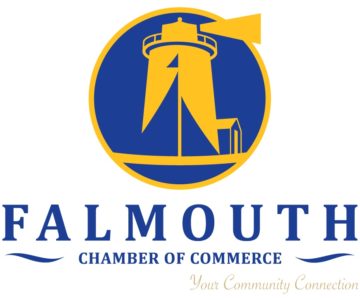(Eastham. April 26, 2019) Wild Care, a wildlife rehabilitation center located in Eastham, is excited to announce the launch their new initiative called, “Trash Your Tackle”. In this pilot initiative, five PVC receptacles will be placed at separate locations in the Town of Chatham. The receptacles will serve as repositories for derelict recreational fishing gear – including hooks, lines, and sinkers. The ultimate goal of the PVC receptacles is to provide a place for the public to deposit gear, and safely remove it from the environment. The receptacles will be emptied on a weekly basis by volunteers from Cape Abilities (Hyannis). Materials collected will be brought to Wild Care to be weighed, itemized, cleaned, sorted, recycled, repurposed or disposed of appropriately, depending on the materials.
“Dr. Robert Duncanson, Director of Health & Natural Resources, Town of Chatham was instrumental in making this new initiative happen for Wild Care–demonstrating the Town’s commitment to a clean environment that benefits wildlife and people,” remarked Wild Care Executive Director, Stephanie Ellis. “Our goal is to decrease the number of fishing-debris related wildlife casualties, and raise awareness that materials such as fishing line, hooks, lures, and sinkers can be extremely harmful to wildlife – even when these items are not in the water. Wild Care has seen over 25 fishing-debris related injuries in waterbirds in the past two years, and the numbers have been increasing annually.”
“Most people want to help the environment, but may not be aware of exactly what to do,” states Ellis. “These receptacles will educate and empower people to remove these items from the environment, so that they do not become a hazard to wildlife, or to people. Hooks, line, jigs and sinkers, when ingested by marine animals, often lead to obstruction, starvation and ultimately death. Contrary to popular belief, birds and other wildlife cannot digest hooks and plastics that get into their system.”
“The community has really rallied around this important initiative with generous financial support and in-kind donations,” says Ellis. The Boy Scout Troop #83 from Eastham built the PVC receptacles for the program, with donated materials. In addition, Wild Care has received generous donations and support from these community sponsors:
- Cape Air
- CARE for the Cape and Islands
- Garvey Communication Associates, Inc.
- Nauset Disposal
- Nauset Marine
- No. Chatham Outfitters (Our very first sponsor!)
For more information visit: https://www.wildcarecapecod.org/tyt/,or contact Executive Director, Stephanie Ellis at © 508-240-2255, or email stephanie@wildcarecapecod.org.
Origin of Trash Your Tackle: This pilot project is modeled after a similar successful initiative, launched in 2014 by the Center for Rehabilitation of Wildlife (C.R.O.W.) on Sanibel Island, Florida called, “Mind Your Line”. This initiative was instituted to minimize wildlife injury related to fishing. Thirty receptacles are placed throughout the island. A recent analysis shows a downward trend in fishing-related injuries between 2014 – 2017, in their most commonly impacted species. The findings suggest that the program has a direct positive impact. Trends in Fishing Related Injuries to Wildlife in Southwest Florida, Emelie Perez, BS Biological Sciences, 2019.
###
About Wild Care: Wild Care’s mission is to treat injured, ill and orphaned native wildlife for release, to prevent wildlife casualties through public education and live counseling, and to engage the community in conservation through volunteerism. Since our founding, Wild Care has accepted over 27,000 wild creatures, representing 275 species of native birds, mammals, and reptiles. On average, Wild Care receives over 1,800 wild animals per year for treatment. If you encounter injured, orphaned or ill wildlife, please call Wild Care’s “Wildlife Helpline” at 508-240- 2255. www.wildcarecapecod.org. Find us on Facebook, “Wild Care Cape Cod”.























